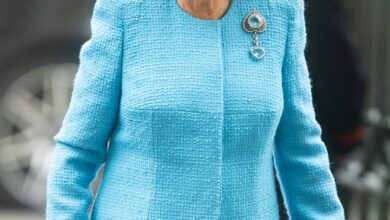Fit and healthy 27-year-old young man has died from the AstraZeneca Covid vaccine… after ‘accidentally’ receiving the controversial jab








A ‘fit and healthy’ man died from a blood clot on the brain after he was accidentally given a controversial Covid-19 vaccine due to an administrative error.
A report has revealed that Jack Last, 27, was only offered the Oxford AstraZeneca jab because his medical records wrongly stated he was living with parents who are in a “risk group”.
The engineer, from Stowmarket, Suffolk, complained of headaches after receiving the jab on March 30, 2021. He died three weeks later, on April 20.
Just a week after he received the jab, government health advisers urged people under 30 to get an alternative vaccination to the AstraZeneca shot, due to the increased risk of deadly blood clots.
A new report from the Suffolk and North East Essex Integrated Care Board has revealed that Mr Last was only given the jab because he was wrongly identified as living with his parents.

Jack Last, 27, died at Addenbrooke’s Hospital in Cambridge on April 20, 2021, just weeks after receiving the Oxford AstraZeneca jab

His sister Jasmine previously described Jack as ‘a great uncle’ to his nephew Reggie

She also described her brother as an ‘adventurer’ and said: ‘He’s done so much with his life’
His medical file accidentally contained the same landline number as that of his parents, who belonged to the risk group.
But he had already moved to his own home in 2018 and changed his contact details, but his parents’ landline number was still incorrectly listed in his file.
Mr Last received his first shot on March 30, 2021, a few days before new guidelines were to be issued for offering the alternative Pfizer or Moderna vaccine to people under 30.
The report also found that his death was the result of “systemic failures, human error and tragically unfortunate timing.”
A statement from the family said it was “heartbreaking” to hear about the mistakes that had been made that led to him being invited for the vaccination earlier.
They previously described how surprised he was to be offered his first dose of the Covid vaccine so quickly, as he had no underlying conditions.
One day before Mr Last received his text message on March 20, it was decided to expand the criteria for who is eligible for the vaccine to include people living with eligible patients.
A search was made for people who were linked to landline numbers. Mr. Last was invited because according to his data he was registered as ‘living together’ with his parents.
He first felt ill on 5 April and contacted NHS 111 for advice on 9 April.
Mr Last was later advised by a clinical advisor to go to West Suffolk Hospital in Bury St Edmunds.

In 2016, Mr Last spent six months working with the British Antarctic Survey in Antarctica (pictured in his uniform), operating a traverse system to deliver scientific equipment

Later in 2018, he obtained his US pilot’s license and traveled to California, where he flew over the Golden Gate Bridge, past the Hollywood sign (pictured)
Mr. Last was scanned by an after-hours service, which was outsourced to another company.
The radiologist reported on the CT scan that there were no acute abnormalities in his brain. This later turned out to be incorrect.
The report states: ‘It would also have been wiser to refer Jack immediately to another hospital or centre that could perform the CT venography he needed, rather than waiting until the next day.’
The next day a CT scan was performed which showed a blood clot, which delayed treatment for 15 hours.
The report concluded that while it was unlikely that this delay would affect the outcome for Mr Last, it was nevertheless a missed opportunity.
When his condition deteriorated, he was transferred to Addenbrooke’s Hospital in Cambridge.
Suffolk and North East Essex ICB Medical Director Dr Andrew Kelso said: “Our thoughts are with Jack’s family and with them at this very tragic event.

The AstraZeneca vaccine was the most widely used vaccine in the UK during the initial rollout of the vaccination programme, before it was linked to a risk of blood clots.

Researchers believe the rare side effect occurs because the modified cold virus in the shot negatively affects platelets in the blood, triggering clotting.
On behalf of all partners in the system, we sincerely regret what has happened and express our sincere condolences for the loss, grief and misery they must experience.
‘Given the seriousness of the event, we immediately commissioned an independent investigation to fully understand what led to this tragedy and to learn lessons from it.
‘We also wanted to give the family all the answers to their questions.
“This independent evaluation allowed the system to look at the incident from start to finish, without the constraints of organizational boundaries and without bias.”
An inquest into Jack’s death in 2022 concluded that he had died as a “direct result” of the vaccination.
The AstraZeneca vaccine, which has since been discontinued, was ultimately found to carry a very rare risk of causing potentially fatal blood clots.
This side effect, which was not noted in clinical trials because it was so rare, is called thrombosis with thrombocytopenia syndrome (TTS), or also called vaccine-induced immune thrombotic thrombocytopenia (VITT).
The complication was only officially discovered in March 2021 and causes people to experience blood clots and low platelet counts, which normally help blood to clot.
These clots can lead to death and disability. Some people have suffered brain damage, while others have had limbs amputated.
The complication is extremely rare, given the millions of doses distributed during the rollout. The risk is estimated at about one in 50,000, although some estimates put it even lower.
Cases of clotting were first reported in the EU, with several countries on the continent delaying or even suspending their rollout of the jab.
Britain eventually followed the lead of its European neighbours, first stopping vaccinations for people under 30 and then, a few weeks later, for those under 40.
Experts based their conclusion on the fact that younger groups are at lower risk of Covid-19. The benefits of vaccination therefore do not outweigh the risk.
About 50 families and individuals who died or were disabled by this rare side effect are taking AstraZeneca to court for damages, claiming that AstraZeneca’s “flawed” vaccine is responsible for their injuries and the deaths of their loved ones.
If successful, the British taxpayer will foot the bill, which legal experts say could amount to more than £250 million. under a deal struck between the pharmaceutical giant and ministers in the darkest days of the Covid lockdown.
The deal was to protect vaccine makers from the risk of being sued for extremely rare side effects that went undetected during clinical trials, so the vaccines could be rolled out across the UK as quickly as possible and the crippling lockdowns could be ended.
According to figures from the UK medicines regulator, the MHRA, TTS is believed to be responsible for at least 81 deaths in the UK.
Not all claims are proven and not every family takes legal action.




